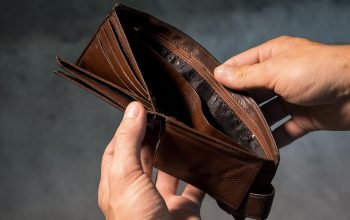Pre-Pack Business Finance is funding arranged specifically for the purpose of buying the functioning business of an insolvent company.
What is the difference between bankruptcy and insolvency?
These are two definitions that both refer to a situation whereby liabilities exceed assets of either a business or an individual, and so it’s no surprise that many people get bankruptcy and Insolvency confused. To try to help simplify matters, we’ve explained what each term means below.
Insolvency
In simple terms, insolvency can be defined as a financial state and occurs when:
- Your debts exceed your assets i.e. the money going out to pay your bills is higher than your income (balance sheet test);
- You are not able to pay your bills on time and as they fall due i.e. you pay your bills late or not at all (cash flow test)
Insolvency can relate to any legal entity and covers individuals, sole traders and companies. Whilst all of these can be insolvent, the way in which we deal with the insolvency varies. In addition to the test above, pursuant to the Insolvency Act 1986 a Company is deemed unable to pay its debts;
- If a creditor to whom the Company is indebted in a sum exceeding £750 then due, has a written demand (also known as a Statutory Demand) served upon it requiring the Company to pay the sum due within 3 weeks, but fails to make the payment as demanded, then it is said to be insolvent.
- If, in England and Wales, execution or other process issued on a judgment, decree or order of the Court in favour of a creditor of the Company is returned unsatisfied in whole or in part.
- If it is proved to the satisfaction of the Court that the Company is unable to pay its debts as they fall due
If you think you or your Company is insolvent, then it’s important that you seek professional advice from a Licenced Insolvency Practitioner on how to deal with your situation. There are many options that are available to businesses including Liquidation, Administration, Company Voluntary Arrangements and even recovery. The sooner you seek help and advice, the more options that will be available to you.
Bankruptcy
Bankruptcy is a remedy for individuals who are insolvent based either on the balance sheet test or the cash flow test as detailed above. Bankruptcy is a legal procedure that results from a successful application to Court on the following basis:
- You have made an application to Court to voluntarily declare yourself bankrupt;
- Somebody you owe money to (a creditor) has applied to Court to have you declared bankrupt
If you are an individual or sole trader that is insolvent then bankruptcy could be an option for you. However, Bankruptcy does have some consequences that you should consider if you are thinking of taking this route. You can read more on the Government website by following this link. There are other options that may be available to you and whilst bankruptcy is the best option for some, it isn’t right for others. So, if you are a business or individual that is insolvent and would like to discuss your options, call Lines Henry Limited on 0800 012 6649 (0161 929 1905 from a mobile) and see how we can help.



